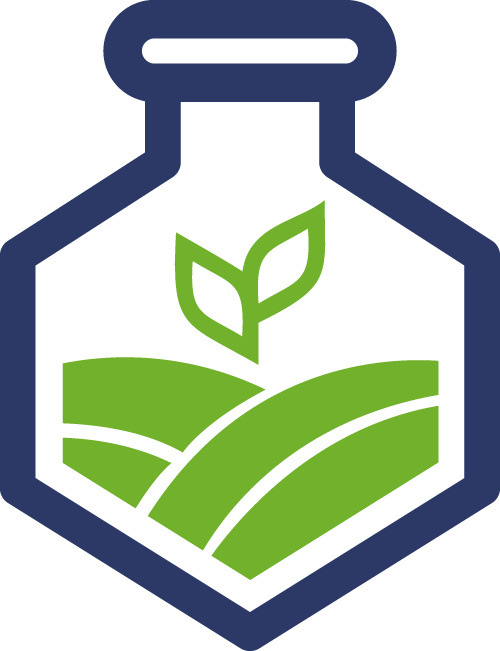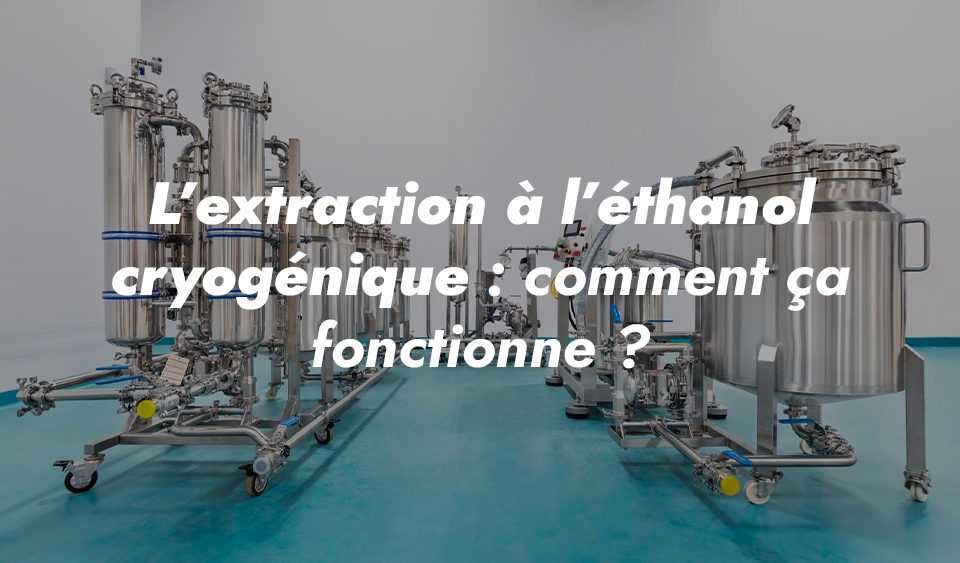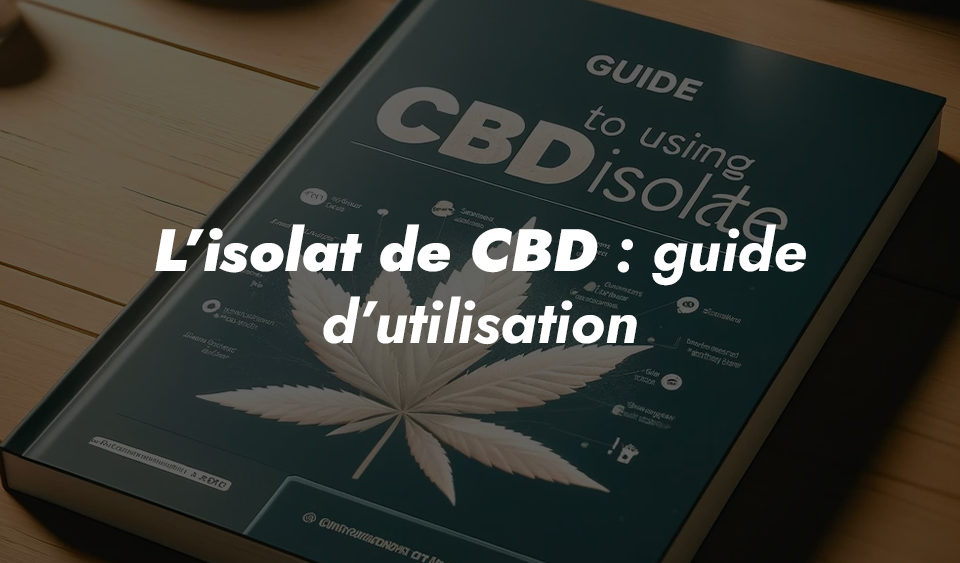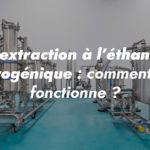
Cryogenic ethanol extraction: how does it work?
October 22, 2024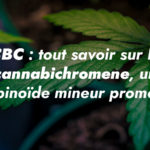
CBC: everything you need to know about cannabichromene, a promising minor cannabinoid!
November 26, 2024CBD distillate is the main ingredient in hemp-derived products. Its high concentration, coupled with its molecular richness, make it a raw material of choice. When it comes to making CBD products, it's essential to know what CBD distillate is, how it's obtained and what its main uses are.
Green Exchange, a French extraction center of excellence and distillate manufacturer, is delighted to share its knowledge with you.
CBD distillate: what is it?
CBD distillate is a purified, yellowish extract obtained from hemp flowers. It contains only the plant's active molecules: cannabinoids and terpenes. It also has a high CBD concentration. It can contain up to 90% cannabidiol.
Although CBD distillate is the most popular of all, it's important to know that it's also possible to make CBG or CBN distillate.
Similarly, some distillates are full spectrum (containing THC, less than 0.3%) or broad spectrum (THC-free). And it's just as possible to retain terpenes as to eliminate them. This will depend on the type of finished product you wish to produce from the distillate.
In short, the term "CBD distillate" encompasses a wide range of hemp distillate types. That's why, if you're looking for a supplier of CBD distillates, it's important to turn to a company that manufactures and is an expert in its field.
A company like Green Exchange will be able to guide you towards the form of distillate best suited to your needs.
Here are a few key facts about our various hemp distillates. Please note that these data are based on laboratory analyses of our products. The percentages indicated, as well as the composition, may therefore vary from one manufacturer to another.
| Full spectrum CBD distillate | Distillate CBD broad spectrum | Distillate CBN | Distillate CBG | |
|---|---|---|---|---|
| % CBD | +75 % | +90 % | 20% CBD and + 55% CBN | 5% CBD and +80% CBG |
| THC | less than 0.3 | 0 % | 0 % | 0 % |
| Minor cannabinoids | Approx. 7%. | Approx. 3%. | About 10% of the total | Approx. 3%. |
| Terpenes | Yes, but can be removed | Yes, but can be removed | No, but can be added | No, but can be added |
Note that there is also a distillate called "cristal résistant". This type of distillate is less rich in CBD (around 50%), but has the advantage of retaining its viscous form for longer. This is the type of distillate we recommend in particular to manufacturers of vape products.
CBD distillate manufacturing process
CBD distillate production is based on a series of meticulous processes designed to extract and purify the active compounds from the cannabis plant. This can vary according to the manufacturer, the type of distillate required and the initial extraction technique used.
Here, however, is an outline of the main steps involved in making a CBD distillate in our laboratory.
Initial extraction
The process begins with the initial extraction of the trichomes (the resin glands of the plant containing the cannabinoids). There are various extraction techniques, generally divided into two main families:
- Solvent extraction: the chemical properties of different solvents are used, such as supercritical CO2, hydrocarbons (propane, butane) or cryogenic ethanol.
- Solvent-free extraction : mechanical techniques such as the rosin press or ice water are used here.
The result is a viscous liquid containing all the molecules and substances found in the flower trichomes. In the jargon, this liquid is generally referred to as "crude oil".
All the steps that follow are designed to eliminate undesirable substances/molecules (chlorophyll, fats, possibly THC).
Winterization and filtration
Crude oil then undergoes an initial purification process called "winterization". This involves mixing the crude extract with ethanol and cooling it to very low temperatures. In this way, the impurities solidify, enabling them to be easily filtered out.
These two steps are particularly delicate, since for the process to be effective, the crude oil must be kept between -80°C and -20°C for 24 hours.
Then a race against time begins, as the miscella obtained during winterization must be filtered before it warms up. This would dissolve the crystallized impurities, rendering the whole process obsolete.
Decarboxylation
As you probably know, cannabinoids such as CBD and THC are present in acid form in the cannabis plant (CBDa and THCa).
Decarboxylation is a process which heats the extract to convert these acids into their active forms. This step makes the cannabinoids biologically active and ready to be absorbed by the body.
Final distillation
The heart of the process is molecular distillation. This technique involves heating the purified mixture in a vacuum to evaporate the desired cannabinoids, leaving any impurities behind. These vapors are then condensed and collected, producing a highly concentrated and pure CBD distillate. Distillation can be repeated to achieve an even higher level of purity.
Note that we also carry out remediation at this stage. This involves lowering the THC content below 0.3% (for full spectrum distillates) or 0% (for broad spectrum distillates). To achieve this, we use a widely-used technique known as "chromatography".
Recrystallization
To further improve distillate quality, CBD is recrystallized. In this process, the purity of the CBD distillate is further enhanced by dissolving it in an inert solvent. The solution is then cooled to form pure CBD crystals, which are then separated from the solvent. The resulting distillate is an even more purified CBD product.
This is why our CBD distillates are sold in crystallized form.
The 3 main benefits of CBD distillate
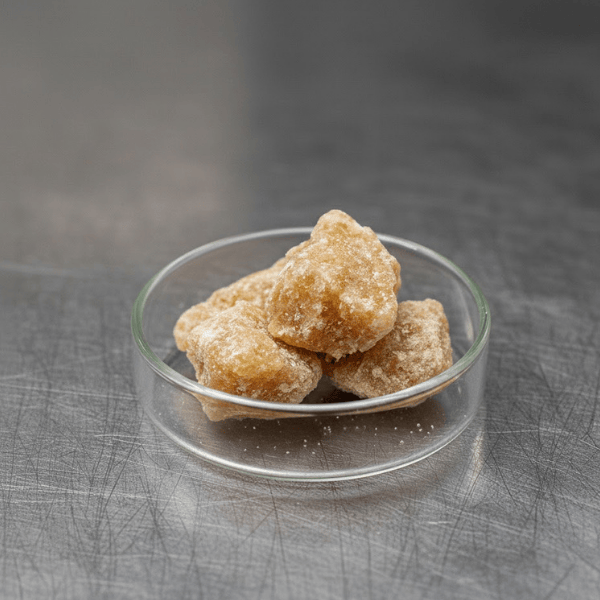
CBD distillate is clearly one of our flagship products. And there are several reasons for this:
- Concentration: after CBD isolate, distillate is one of the purest forms of CBD, often at over 90% concentration;
- Rich in composition: the distillate not only offers a high CBD content, it also contains interesting quantities of minor cannabinoids.
- Versatility: as we've seen, it's possible to produce distillates with or without THC, with or without terpenes, and even with high concentrations of minor cannabinoids (CBN and CBG).
Bear in mind, however, that there are other raw materials just as interesting! For an informed choice, find out more about them too:
- CBD Isolate is the purest form of CBD, containing only CBD ;
- Mother liquor is a raw extract exceptionally rich in minor cannabinoids;
- Crud oil, which we have already mentioned, can be used to make oils;
- Finally water-soluble CBD is a water-soluble form of CBD, making it possible to produce fat-free CBD products.
Applications and uses of CBD distillate
As we said a moment ago, one of the main advantages of CBD distillate is its high concentration coupled with its molecular richness. It enables us to offer products with a high CBD content while benefiting from the entourage effect, the principle by which hemp molecules act in synergy. What's more, the possibility of adding or removing terpenes definitely enhances the possibilities.
CBD distillate is used in many products:
- Edible products: one of the most popular markets for CBD distillate is edible products. From chocolate to jelly beans to beverages, distillate can be added to foods without altering their taste, offering discreet and convenient consumption.
- Oils and tinctures: CBD tinctures and oils are made by diluting CBD distillate in carrier oils such as coconut oil or hemp oil. These products are easy to dose and can be taken orally or applied directly to the skin.
- Cosmetics and skincare: CBD distillate is prized for its anti-inflammatory and antioxidant properties, making it a key ingredient in many skincare products, such as moisturizers, serums and soothing balms.
- Vaporization products: because of its purity, CBD distillate is ideal for making vape cartridges and e-liquids. It offers a clean, powerful vaping experience, without the additives and impurities that might be found in less refined extracts. Note that, in this particular case, we recommend the resistant crystal distillate.
- Medical formulations: the purity and precision of the dosage make CBD distillate suitable for medical applications, particularly for patients suffering from chronic pain, anxiety, sleep disorders or epilepsy.
In short, it's hard to beat the versatility of CBD distillate!
Our conclusion
CBD distillate is an indispensable cannabis extract if you're making hemp-derived products. In fact, it's one of the few extracts to combine high CBD content with a broad/full spectrum composition. Whether for edibles, topicals, tinctures or vapes, this concentrate offers solutions tailored to modern requirements.
Mastery of extraction and distillation techniques, and the use of high-quality equipment, are essential to produce a first-class distillate that meets the CBD industry's highest quality standards.
As experts in the field, Green Exchange is committed to providing top-quality CBD distillates, manufactured to rigorous standards to meet the needs of the market. Please do not hesitate to contact our team for further information.
